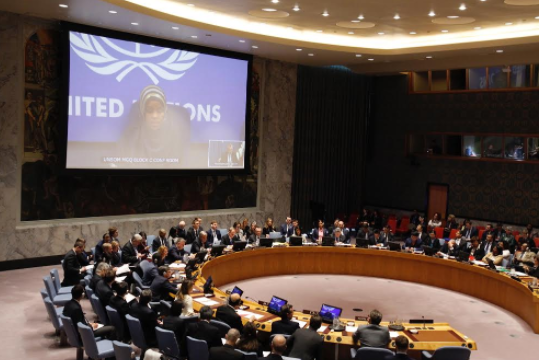Inside the Security Council Open Debate on Modern Slavery
By Sarah Tunnell
Ilwad Elman Briefing the Security Council at the Open Debate on Forced labour, Slavery and Other Similar Practices. (Photo: Elman Peace & Human Rights Centre/Twitter)
At the March 15 Security Council Open Debate on Forced Labour, Slavery and Other Similar Practices, Member States underscored the pivotal nexus between conflict, displacement and human trafficking. Speakers emphasised countering violent extremism, improving intelligence sharing and tackling impunity as the most effective ways to address the crisis, which affects more than 21 million persons across the globe. A handful of states drew critical links between military interventions, arms trades and sexual and gender-based violence, yet the action steps most frequently offered to address trafficking centred around securitised perceptions of development.
Civil society representative Ilwad Elman, of the Elman Peace and Human Rights Center, briefed the Council via teleconference from Somalia about the devastating scale of trafficking and sexual exploitation in her country. Elman’s voice stood apart from the overarching discussion, which focused on women through the lens of victimisation and protection, rather than emphasising their agency as change-makers in society.
Find the full analysis of the Security Council open debate on Modern Slavery and Forced Labour here

